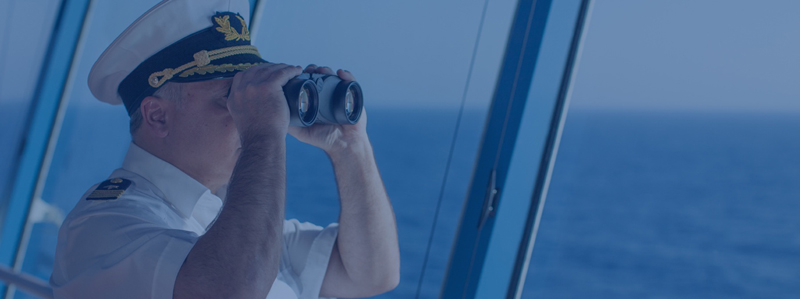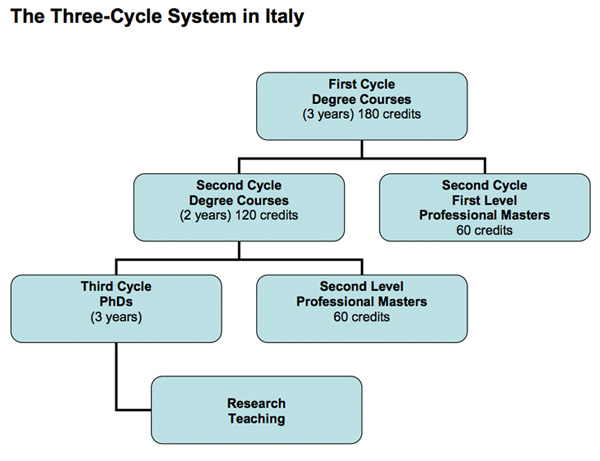MBA - Master in Maritime and Shipping Management / Presentation
Introduction
The MBA in Maritime and Shipping Management has been designed by the International Telematic University Uninettuno in order to provide the necessary knowledge and expertise to senior managers and leaders of the shipping and maritime sector. The emphasis is on shipping and maritime management in an international and local setting and the program draws on an emerging body of knowledge and evidence to allow comparisons across different countries and systems.
The programme focuses primarily on education in shipping, business, management, and maritime science and technology, to build up the expertise of the shipping industry, research and development.
The Maritime Studies programme leads to the award of the MBA in Maritime and Shipping Management degree. An internship to the maritime industry as well as field visits supplements the learning experience.
Students will be offered an opportunity to develop a career in global maritime management, freight forwarding or exporting and importing. They will gain a distinctive business degree that will let them work overseas, in a wide range of industrial positions, ship operations, marine science, maritime management and operation.
The diversity of supporting activities within the highly dynamic maritime industry and its various sectors consisting of many hundreds of large, medium- sized and smaller employers offers a wide range of opportunities in demanding and challenging posts. Graduates of this program will have a variety of career options including ship management, underwriting, port agency, law offices, freight forwarding, ship finance, ship broking, import and export business as well as administrative posts in the private and public sectors.
The Department collaborates with a number of local shipping organisations and companies such as port authorities, ship owners’ and shipbrokers’ companies for the purpose of providing students with practical experience as well as excellent employment prospects.
Aims & Objectives:
Aims:
This program aims to equip students with a thorough knowledge of aspects of the maritime business, along with a broad business administration skills required to enable them to fulfil the requirements of a managerial post within the maritime world and its associated industries.
To achieve this purpose, the program offers its students a unique blend of professional and academic courses. Practical training programs further enrich their studies and enable them to become rapidly adaptive to the needs of employers and to respond appropriately and imaginatively to emerging issues in a dynamic industry.

Objectives:
In order to achieve the goals of the program, the following objectives were developed:
-
to equip students with a strong background in the standard core curriculum of business administration subjects.
-
to provide students with a firm grasp of the economic, political and social forces shaping the globalising trends of the world in the 21st century as seen in the structure and functioning of the shipping industry.
-
to provide a foundational and contextual approach to the appreciation of maritime law and the related legal issues.
-
to explain the economic and commercial environment in which the shipping market is organized and to answer the basic questions on how it works.
-
to provide an innovative, "hands-on" approach to instruction directed by a dedicated faculty composed of experts in their fields.
-
to provide a good grounding for a variety of careers in a range of management functions.
At the end of this program students should be able to:
-
Demonstrate knowledge and understanding in the field of shipping and maritime management, structure and operation
-
Describe the functions of shipping companies, analyze daily running costs and understand dry cargoes and tanker markets.
-
Identify the regulatory and legal shipping environment.
-
Understand the role of International Organizations and Associations.
-
Demonstrate knowledge on International law, including sources of the law, coastal state and flag state jurisdiction, environmental protection and freedom to navigation.
-
Know the legal regime that applies on vessels on different areas of maritime zones.
-
Comprehend the meaning of Piracy and how it’s been faced.
-
Display a detailed knowledge and understanding of the marine environment.
-
Identify, describe and critically analyze the major issues in the management of ports, handling of cargoes and documentation involved;
-
Describe the responsibilities of the parties involved with the transportations of goods and understand the main clauses of a Charter party that describe the responsibilities of the parties involved.
-
Know the importance of P & I Clubs when cargo or vessel damages occur.
-
Be comfortable with Marine Glossary of Abbreviations and Terms.
-
Know the standard form contracts, the shipping documents and the International conventions.
-
Demonstrate the ability to understand key legal concepts.
-
Identify and explain the context, challenges and opportunities involved in the formulation and implementation of shipping and maritimemanagement policy;
-
Understand the nature of marine insurance, the importance it holds in trade and commerce and demonstrate the basic concepts of marine insurance law.
-
Be comfortable with the standard terminology used in a contract and understand the use of Lloyd’s Law reports.
-
Analyze the chartering procedures, the documentation involved and the proper actions taken regarding the problems arising from disputes.
-
Review types of policies, situations and issues in the field of shipping and maritimemanagement, planning and policy-making;
-
Appreciate and evaluate the shipping finance sector.
-
Use the appropriate tools to conduct financial analysis for investment purposes in the shipping industry.
-
Apply knowledge and skills in selected areas of shipping and maritimemanagement;
-
Conform to accepted modes of professional behavior and work in a team in an appropriate role; build upon the concepts and methodologies developed during the program through completion of a dissertation;
-
Evaluate economic activities whose primary purpose is to promote, restore or maintain shipping and maritimemanagement services;
-
Describe the role and apply selected techniques of economics for financial planning of shipping and maritimemanagement;
-
Describe and use concepts of organization and structure, methods of planning and managing resources, and systems for reviewing and evaluating services;
-
Demonstrate an understanding of the principles of good governance and professional ethics;
-
Communicate effectively, work in groups, set priorities and manage workload effectively;
-
Develop their capacity for independent learning and continuing professional development;
-
Describe and critically analyze contemporary issues of shipping and maritimemanagement sector reforms and their relevance to financial resources development;
-
Analyze contemporary approaches to financial resources management and develop a strategic approach to development for the shipping and maritimemanagement sector;
-
Describe and critique current concepts, models and theories of shipping and maritimemanagement;
-
Understand the role of management and leadership roles in shipping and maritimemanagement;
-
Possess conceptual understanding of management and leadership thinking that enables students to reflect on and evaluate critically both current research and its application to the practice of leadership in shipping and maritimemanagement;
-
Introduce students to the main scientific disciplines that contribute to modern shipping and maritimemanagement services.
Program of Study
The MBA Program has a duration that corresponds to 90 ECTS according to the ECTS cycle study system of intensive full time study (180 UK credit equivalence).
To earn 1 ECTS academic credit, according to the rules currently in effect a student must carry out 25 hours of activity. These are structured in videolessons, assignments, videoconferences, didactic and research activities in a combination of synchronous and asynchronous distant learning educational methodology. The Master is composed of 6 academic core module units and a Research Dissertation.
The academic title that is awarded in accordance with the higher education legislation in Italy is Master Universitario. For more details about the Program of Study please visit the following link: Educational offer

Internship and Erasmus Mundus Opportunities
Students could also make use of the Erasmus Mundus mobility program, which is coordinated by the International Mobility Office of the International Telematic University UNINETTUNO. The Office is responsible for promoting students and teaching staff mobility exchanges with other Universities, both in Europe and non-European countries. The Office coordinates local Erasmus activities and the Erasmus Mundus projects in which the University is involved.
Languages of Instruction
In the International Telematic University UNINETTUNO student can attend its Programs in one the languages that these are offered. The official languages of the Programs of the University are:
Italian, English, French, Arabic, Polish and Greek.
The MBA in Accounting and Finance is offered in the English and in the Greek language. In the near future, Russian and Chinese will be added as official languages in the International Telematic University UNINETTUNO.

Didactic Organization
|
CORE MODULES *
|
|
Insegnamento |
Docente |
Module 1
Principles of Maritime and Shipping Management |
8 ECTS |
Module 2
International Law of the Sea |
8 ECTS |
Module 3
Marine Geography and Oceanography |
8 ECTS |
Module 4
Port and Ship Cargo Operations and Management |
8 ECTS |
Module 5
The Law of Carriage of Goods by Sea |
8 ECTS |
Module 6
Marine Insurance |
8 ECTS |
Module 7
Chartering |
8 ECTS |
Module 8
Marine Environment and Pollution |
8 ECTS |
Module 9
Research Methods |
12 ECTS |
|
DISSERTATION
|
Module 8
Dissertation |
14 ECTS |
|
In order to get the Master’s title, that will be awarded by the International Telematic University UNINETTUNO, the student has to prepare a final 15.000 words dissertation thesis on a topic agreed with the Master’s course Scientific Committee
|
|
Additional Variations and Expansions
|
*EACH OF THE SEVEN MODULES ARE ALSO OFFERED AS AN INDEPENDENT PROFESSIONAL PROGRAM AT CERTIFICATE LEVEL AWARDING ECTS.
|
Academic Faculty
The MBA in Maritime and Shipping Management is part of the Academic Programs of the Faculty of Economics. The Faculty has Undergraduate and Postgraduate Programs whereas qualified students can also study for a PhD / Doctorate and conduct Post Doctorate Research.

Didactics
Didactic activity takes place through the Internet, in the relevant section of the portal: www.uninettunouniversity.net, the first portal in the world where teaching is delivered in six languages: Italian, English, French, Arabic, Polish and Greek. The adopted psycho-pedagogic model implements the shift:
-
from the central role of the teacher to that of the student;
-
from the transmission of knowledge to the building of knowledge;
-
from passive and competitive learning to active and collaborative learning.
The students play an active role in their learning progress and can study whenever and wherever they wish to. In the course of their learning, the students are guided by an online tutoring system, which is able to facilitate their learning and web-based communication process and to supply them with the tools to carry out their study of their particular subject successfully.
The online tutoring is organized into classes of students, with an advanced agenda system that is able to recognize each individual and to obtain the tracking of didactic activities and the quantitative and qualitative evaluation of the learning process of each single student.
Methodology
The didactic activity on the Internet unfold within the WEB macro-area known as the Didactic Cyberspace. In the Didactic Cyberspace the learning and developmental process is implemented and the access are differentiated through login and passwords on the basis of the three different roles of those who participate in the learning process: Professors, Tutors and Students. The three categories of those who utilize the service can access information linked to each teaching subject.
In particular, the Professor and Tutor can modify or substitute didactic materials and add new ones for the duration of the teaching period, while the student has his or her own area where data, information and personal notes can be inserted. The student can access:
-
the Page of the Appointed Teaching Professor
-
the Tutor Page.
Within these pages the Learning Environments are inserted and it is possible to access:
They constitute the course contents: digitized video-lessons with bookmarks allow the hypertextual and multimedia link to books, selected bibliographical references, texts of the exercises, lists of selected websites. The system of dynamic bookmarks gives the Internet-based video-lessons a hyper-textual character allowing different levels of navigation: from one lesson to the other one, between the subjects of a single lesson, between the materials referring to the same subject.
The students enrolled in the Master’s course will be able to be followed during every step of their study path by the Telematic Professor-Tutor, who represents a guide as well as a constant presence during your Learning Process. The long distance Tutoring activities can be carried out in two ways:
-
-
in a synchronic manner, by using the chat rooms, the videochat rooms, video and audio-conference systems activated in the Didactic Cyberspace, but also the three-dimensional classroom created on the UTIU Island of knowledge on Second Life.
-
in a diachronic manner, through tools such as e mail and discussion forums on the Internet. The discussion forums, related to the topics of a given teaching subject, allow you to extend the dialogue and activate a collaborative learning and to organize your thoughts regarding the discussion topic and study activity that you are engaged in.
-
The virtual classroom in UNINETTUNO Island of Knowledge on Second Life
In UNINETTUNO (International Telematic University) Island of Knowledge we realized a 3D Auditorium devoted to the Master’s course. This is where the students’ avatar and professors/tutors’ avatars interact in the three-dimensional world of UNINETTUNO by them voice. Practice works, assessment tests and videoconferences with the protagonists of the European Union attending through their avatars are carried out, as well as direct practice activities guided by the professors/tutors’ avatars. In the virtual classroom of Second Life on the UNINETTUNO Island of Knowledge the students and the professors/tutors teach and learn in a collaborative and cooperative way, they build and share knowledge with people belonging to different political, cultural and religious realities, they dialogue, cultural differences are compared, socialization processes are activated as well as the creation of new knowledge.
Assessment
For the completion of the Program successful evaluation of all the Academic Modules is required as well as in the final Dissertation.
More specifically, students are assessed as follows:
-
for each Academic Module:
-
written assignment or assignments are required, that are marked by the module coordinator professor. Written assignments are submitted electronically, via the personal special portal that each individual student has, on a specific date (special instructions are given during the course by the Professors, whereas overdue assignments are not accepted by the electronic system. In the case that students want to apply for an extension they have to submit a special request and justification well before the due date).
-
oral or written vis-à-vis / face-to-face examination which takes place in the premises of the University in Rome, or in a venue abroad arranged for the occasion by the University, or in one of the University Technological Poles abroad, or in the premises of Italian Embassies. The assessment of the assignments and of the written exams and the organization of the exams is conducted exclusively by the Academic and Administrative staff of the University. In the following link there is a list of the University Technological Poles abroad: Technological Poles in the world
In the case of unsuccessful evaluation the student has the right to repeat the examination.
Students cannot proceed to the last stage of their studies, the drafting of their Dissertation Thesis, if previously they have not been successfully assessed in all the assignments and oral / written exams.
-
for the Prova Finale / Dissertation Thesis:
-
assessment of the Dissertation Thesis from the supervisors professors of the University.
-
oral vis-à-vis / face-to-face viva examination of the Dissertation Thesis by the Committee of the University Professors that supervised and evaluated the dissertations and the Special Exam Commission. The Final Examination is conducted in English and takes place in Rome or in a venue abroad arranged for the occasion by the University, or in one of the University Technological Poles abroad, or in the premises of Italian Embassies, or via the Proctor U platform and services.
For the written assignments and the Dissertation students have to use the Harvard System for the referencing of their sources, whereas in the case of plagiarism they will be expelled from the Program.
Entry Requirements
The MBA in Accounting and Finance is aimed to prospective students that have a first degree or an equivalent recognized academic title. In addition, knowledge of the English language and Information Technology skills are required. Relevant professional experience is also desirable.
Credits awarded by previous studies could be transferred to the MBA Program subject to approval by the Program’s Scientific and Academic Committee.
The International Telematic University UNINETTUNO holds a strict equal opportunity policy towards all prospective students.
Procedures of Enrolment
The matriculation at the International Telematic University UNINETTUNO can be fulfilled only through our online procedure. It is necessary to have an e-mail account that will be asked for upon enrolment. In order to access the matriculation procedure it is necessary to act as follows:
-
Enter the Administrative Secretariat
-
Execute the new account registration through the system-guided procedure. At the end of the procedure a username and a password will be generated; these are to be used in the restricted area.
-
Access the restricted area of the students' secretariat using the username and password generated by the enrolment procedure.
-
Execute the online matriculation procedure entering the data that will be required. When all data are entered, you will be asked which payment mode you prefer. It is possible to pay the matriculation fee by online payment by credit card or by bank transfer.